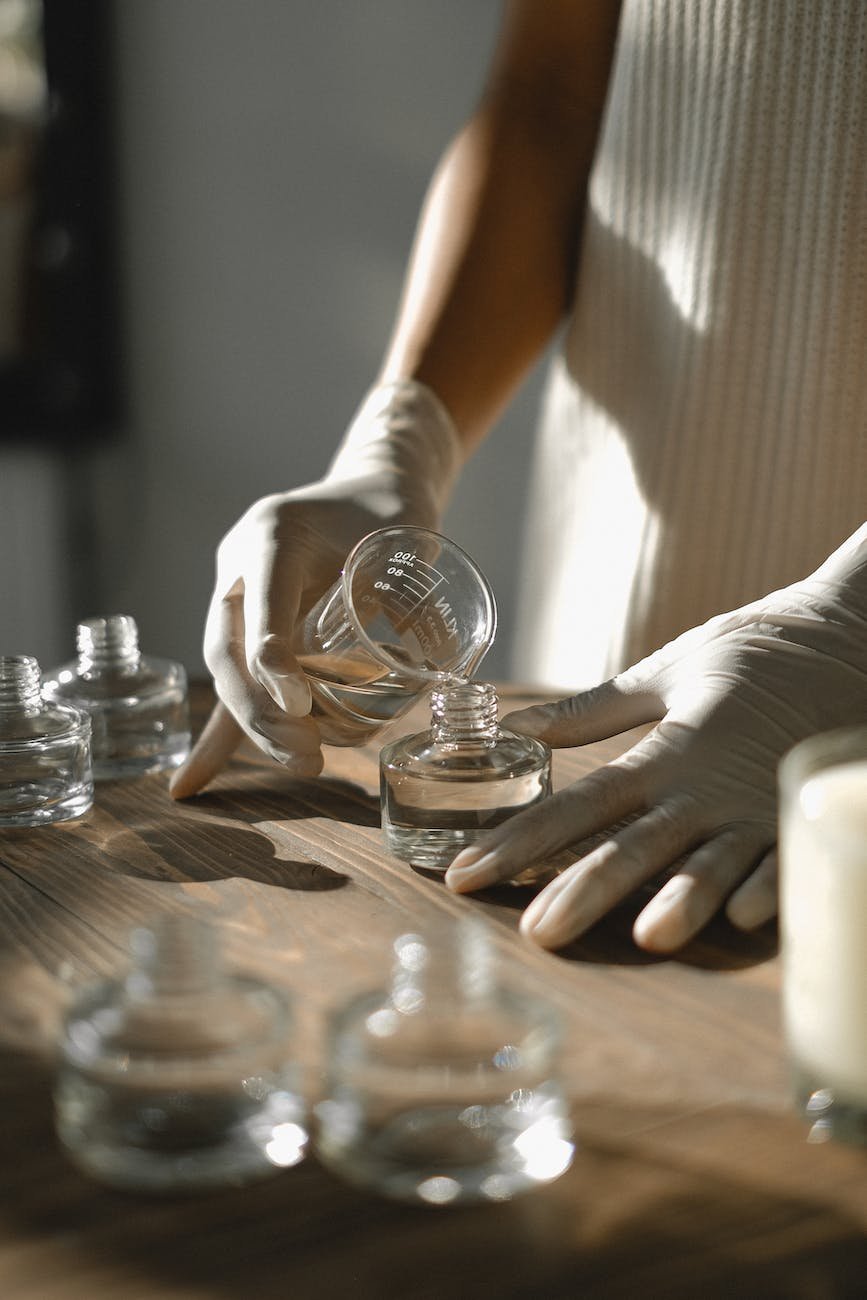Brimming with natural antiseptic and anti-inflammatory properties, Tea Tree Oil has become a staple in many skincare routines. Its potent healing powers have given it an elevated status, making it a coveted ingredient in the beauty world. But what is it about this essential oil that makes it so beneficial for the skin? Let’s delve into the secrets of Tea Tree Oil and discover why it’s a skincare superhero.
Tea tree oil plant
The Tea Tree Oil magic begins with the plant itself, scientifically known as Melaleuca alternifolia. Native to Australia, this resilient plant thrives in swampy coastal areas, demonstrating its ability to survive and thrive in harsh conditions. The plant features needle-like leaves from which the valuable oil is extracted. Local indigenous communities in Australia have recognized and utilized the healing properties of the Tea Tree plant for centuries. By crushing the leaves and applying them to wounds and infections, they were able to harness the plant’s natural antiseptic qualities. It wasn’t until the 1920s that the oil was first distilled and its benefits began to be recognized worldwide. Today, the plant is cultivated globally, its natural powers captured in the form of essential oil that’s cherished in skincare routines across the globe.
Chemical composition of tea tree oil
This wonder oil is a rich source of over 100 chemical compounds, each contributing to its unique characteristics. The primary active ingredients are Terpinen-4-ol and alpha-terpineol, known for their strong antimicrobial and anti-inflammatory properties. However, it’s the synergy of all components, including gamma-terpinene, alpha-terpinene, and 1,8-cineole, that truly makes this oil a superstar. This alchemy of nature allows Tea Tree Oil to combat a variety of skin ailments effectively. Despite its potency, the oil’s low cytotoxicity makes it gentle on the skin, a rarity among such effective ingredients. A deeper understanding of the chemical composition of Tea Tree Oil truly underscores why it’s such a cherished ally in skincare.
Understanding the Basics: What Exactly is Tea Tree Oil?
Tea Tree Oil is a true gem derived from Mother Nature’s treasure chest. Extracted from the leaves and twigs of the resilient tea tree plant, this extraordinary essential oil carries within its essence a myriad of powerful properties. Revered for its strong antiseptic capabilities and wound-healing prowess, Tea Tree Oil is a prized solution for various skin issues. Its potency arises from its high concentration of natural compounds, which give it its famed effectiveness. Yet, with great power comes great responsibility. Due to its intense concentration, it is vital to remember to dilute Tea Tree Oil before applying it to your skin. This way, you can revel in the many benefits it offers, without overwhelming your skin.
Tea Tree Oil’s Antibacterial Properties: A Force Against Acne
Are you weary of persistent acne? If so, Tea Tree Oil may just be the natural solution you’ve been seeking. This potent essential oil is armed with antibacterial and anti-inflammatory properties that make it an excellent weapon in the battle against acne. With its unique ability to annihilate acne-causing bacteria, Tea Tree Oil can effectively quell the frequency and severity of breakouts. Additionally, its soothing effects help tame the redness and swelling often associated with this pesky skin issue. By introducing Tea Tree Oil into your skincare regimen, you’re not just fighting acne, you’re empowering your skin to recover and flourish. However, remember to apply it in a diluted form to avoid skin irritation. So, why continue battling acne alone when you can recruit the powerful assistance of Tea Tree Oil
Tea Tree Oil as a Natural Antiseptic: Healing Skin Wounds
In the realm of natural wound care, Tea Tree Oil reigns supreme. A potent force against skin damage, this extraordinary oil can gently cleanse wounds while protecting them from infection. When applied in a diluted form to minor skin abrasions, cuts, or burns, it works to expedite the healing process. Its inherent antiseptic properties create a safeguard, warding off harmful bacteria that could hinder healing. Not only does this shield promote faster recovery, but it also minimizes the risk of scarring. Harnessing the power of Tea Tree Oil for wound healing isn’t just about mending the skin; it’s about providing a nurturing environment for your skin to self-repair. Still, it’s crucial to remember the strength of Tea Tree Oil. Always ensure it is adequately diluted before applying to any skin wound to avoid potential irritation.
Soothing Eczema and Psoriasis with Tea Tree Oil
Eczema and psoriasis, notorious for causing relentless itching and inflammation, can be tamed with the powerful properties of Tea Tree Oil. This extraordinary oil offers sweet relief, with its anti-inflammatory capabilities working to reduce redness and irritation, providing comfort for distressed skin. Meanwhile, its antiseptic strength jumps into action to help keep secondary infections at bay, a common concern for those battling these persistent conditions. So, if you’re grappling with eczema or psoriasis, consider enlisting the help of Tea Tree Oil. This natural skincare hero might just be the soothing solution your skin has been longing for. However, don’t forget the golden rule: always dilute before application to protect your skin from possible irritation.
Tea Tree Oil for Oil Control: A Boon for Oily Skin
Combatting excessive skin oiliness can often feel like an uphill battle. Enter Tea Tree Oil – your secret weapon against unwelcome shine. This remarkable oil holds the ability to regulate sebum production, the main culprit behind oily skin. Applying a carefully diluted solution of Tea Tree Oil to your skin can aid in maintaining a balance of oil, thus thwarting the blocked pores and consequent breakouts associated with over-oiliness. However, remember the key to effective use of this potent oil is in its dilution. Regular inclusion of Tea Tree Oil in your skincare regime might just provide the solution you need to bid adieu to oily skin troubles. Imagine having control over your skin’s oil production without harsh chemicals – that’s the magic of Tea Tree Oil for you!
The Versatility of Tea Tree Oil: Adapting to Your Skin Care Routine
The adaptability of Tea Tree Oil lets it easily slide into your existing skincare routine, proving its versatility. The market is flooded with skincare products enriched with Tea Tree Oil – from cleansers and toners designed to combat acne to calming serums and moisturizers that soothe inflammation. You can effortlessly elevate your skincare by adding a couple of drops of this potent oil to your go-to products. It’s a custom treatment made just for you! Just remember, it’s important to dilute Tea Tree Oil before direct skin application to prevent potential irritation. Welcome to the convenience of effortlessly integrating the power of Tea Tree Oil into your skincare routine!

Tea tree oil can be a beneficial addition to your skincare routine when used correctly. Here are some guidelines on how to use tea tree oil:
Dilution: Tea tree oil is highly concentrated and can be irritating to the skin when used undiluted. A common dilution ratio is about 1-2 drops of tea tree oil per 1 tablespoon of carrier oil (such as coconut, jojoba, or almond oil).
Patch Test: Before applying tea tree oil to larger areas of the skin, perform a patch test. Apply a small amount of the diluted mixture to a small area and wait 24 hours to check for any adverse reactions.
Acne Spot Treatment: For acne-prone skin, you can use a cotton swab or a clean fingertip to apply a small amount of the diluted tea tree oil directly onto blemishes. Avoid applying it to the entire face, especially if you have sensitive skin.
Facial Cleanser: Add a few drops of tea tree oil to your regular facial cleanser. This can enhance its antibacterial properties and help control oil production. Use the cleanser as usual.
DIY Face Mask: Mix a few drops of tea tree oil with a suitable base, such as yogurt, honey, or aloe vera gel, to create a DIY face mask. Apply the mixture to your face, leave it on for about 10-15 minutes, and then rinse off with water.
Body Moisturizer: Add a few drops of tea tree oil to your body lotion or moisturizer to help address skin issues on larger areas of your body, such as back or chest acne.
Hair Care: Add a few drops of tea tree oil to your shampoo or conditioner to promote a healthy scalp and address dandruff issues. Ensure the mixture is well-diluted, as direct contact with the scalp can be irritating for some.
Nail Care: Apply a diluted mixture of tea tree oil and carrier oil to the nails and cuticles to address fungal infections or promote overall nail health.
Remember to use tea tree oil with caution, especially if you have sensitive skin or allergies. Pregnant individuals and those with specific health concerns should seek advice from a medical professional before using tea tree oil.


